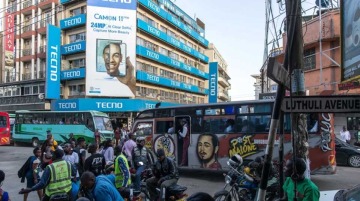
For Chinese entrepreneurs eyeing East Africa, one question looms large: Tanzania or Kenya? Longtime Africa WeChat commentator Xiao Nie (小聂说事儿), who spent 3 years in Tanzania and 11 years in Kenya, cuts through the debate with a vivid analogy: “Tanzania is East Africa’s factory floor; Kenya is its CEO office.”
In his detailed comparison, he unpacks the stark contrasts between the two nations—from labor costs to logistics—and offers blunt advice for investors.
Key Takeaways:
Workforce: Tanzania offers a large, low-cost labor force (63 million people, ¥700/month minimum wage), ideal for textiles and manufacturing. However, Swahili dominance creates language barriers.
Kenya provides English-fluent, skilled workers (¥1,200/month minimum wage), favored for tech, finance and management roles. Its educated talent pool attracts multinationals like Huawei and Safaricom.
Logistics: Tanzania’s biggest infrastructure asset is the Dar es Salaam Port, which handles substantial cargo but suffers from underdeveloped inland transport. Roads and railways connecting to landlocked neighbors like Uganda and Rwanda remain unreliable, increasing logistics costs for businesses relying on regional distribution.
Kenya, meanwhile, has invested heavily in becoming East Africa’s logistics nerve center. The Mombasa Port, combined with the Standard Gauge Railway (SGR), ensures efficient cargo movement across the region. Nairobi’s Jomo Kenyatta International Airport further cements Kenya’s role as a trade and travel hub
Policy & Costs: Tanzania offers low operational costs—electricity at ¥0.5/kWh (thanks to abundant domestic energy resources), cheap land, and even free industrial water in some zones. These factors make it attractive for heavy industries like mining, steel, and large-scale farming. However, policy unpredictability remains a risk. Recent crackdowns on foreign retailers have created uncertainty, though such measures tend to be temporary.
Kenya’s business environment is more structured but comes with higher costs—power averages ¥1.4/kWh. Despite its reputation as Africa’s green energy pioneer, Kenya struggles with systemic power sector issues – privatized utility monopolies, entrenched corruption, and electricity prices artificially inflated by powerful corporate interests.






